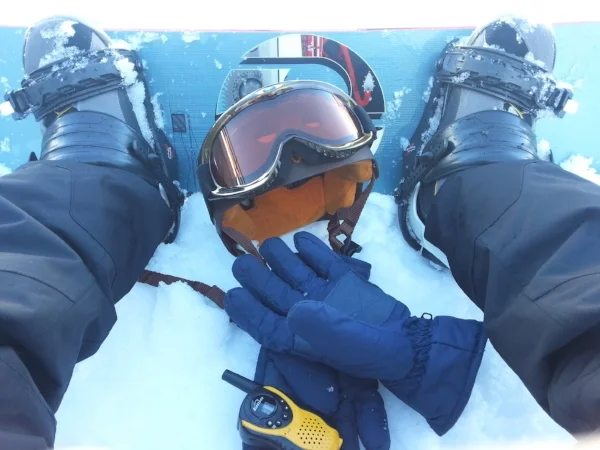Skiing and snowboarding are fun sports to enjoy, but if you are fearful or scared or physically unprepared, your risk of injury significantly increases.
These simple tips may help you avoid injuring yourself for the remainder of this ski-season.
Preparation
Ski trips are great family holidays but let’s not underestimate the volume of activity, its intensity and the demand it places on your body. While most of us exercise for an average of 2.5 hours per week, this will likely increase 10 fold during a week on the slopes. The better your fitness and strength are, the better your body will respond to the challenges of skiing and snowboarding. Building a good fitness base will mean you are less likely to fatigue, making your experience more enjoyable and safe!
Depending on your level of strength and fitness, about 6-12 weeks of preparation is ideal. Seeing as we are already in the midst of the ski season, that level of preparation will have to wait for next season. Why not book in with our Physiotherapist or our Osteopaths for advice or a specific exercise plan instead.
Pre-existing injuries
Niggling injuries here and there are best to get sorted now rather than a week before the trip. A physiotherapist or osteopath will be able to give you a full assessment and guide you through your recovery to get you in the best possible shape for skiing. With pre-existing injuries you must be realistic about how well recovered you are. Take more time to rehabilitate the injury and don’t push yourself too quickly i.e don’t go charging down the steep, mogul infested black run!
Alignment
You don’t need to have an injury to quantify having an assessment with an osteopath or physiotherapist. With sports such as skiing you shouldn’t just focus on knees. Your whole body is utilised from the muscles that are constantly contracting to enable you to move, the nerves firing to help keep your balance and coordination, to your lungs that are working extensively to keep the oxygen circulating around your body.
Good alignment of the body is vital to performing better in sport. I’ve seen many skiers over use their quadriceps muscles from poor balance and alignment. Correcting these bad postural habits can prevent injuries such as muscle tears, strains and tendinopathies, especially around the knees and back. As an osteopath I always try to correct poor alignment in my treatments. Working with Mitesh, our physiotherapist whom specialises in tendinopathies, we are able to ensure the most effective treatment for our patients.
Equipment
The risk of injury increases 800% if equipment is borrowed. Ensure your hired or own equipment is properly fitted, in a good condition and set up correctly. Make sure it also matches your level of ability. Many shops offer a service for customising boots to fit your feet perfectly when purchasing them.
Adequate clothing is also essential for preventing hypothermia.
Behaviour
If apres ski is your thing then keep well hydrated as alcohol decreases your performance considerably. Drinking plenty of water can help flush out the toxins and help ease any post-exercise muscle pains. Not to mention get rid of the hangover!
You will be at your most fatigued on day three of the ski trip. So pace yourself, do not overdo it.
Be aware of other skiers/snowboarders especially when getting off a ski lift. I’ve seen many people come back with knee injuries caused by the person sitting next to them as they exit the ski lift.
Post-ski trip
Post-exercise care is as important as pre-exercise.
Muscle fatigue, tightness, cramps and soreness can easily be relieved by a deep-tissue or sports massage. Our therapists Jo and Tor can tailor the treatment to your preferred levels of intensity and will target the problematic areas, for optimal relief.
Have a wonderful time on the slopes! :)
For more advice/information please get in touch at info@hamptonwickhealth.com, call our messaging service 02089777412 or visit our website www.hamptonwickhealth.com








